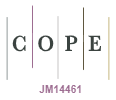Notes on the circular epistemology of afrocarnavales blocs of Salvador
DOI:
https://doi.org/10.5585/eccos.n64.24023Keywords:
afoxés. afro blocks, carnival, circularity, epistemology.Abstract
In conceiving the space of carnival from its internal socioeconomic, political and cultural tensions, the black population of Salvador (BA) has been, since the second half of the 19th century, elaborating forms of entertainment that, in addition to entertainment, both denounce ethnic-racial exclusion and announce anti-racist possibilities of social organization. Taking as empirical basis the context of soteropolitan carnival and as a theoretical contribution the contributions of Paulo Freire and other authors of Brazilian critical thinking,and this article examines how the dialectic contained in the complaint/announcement relationship, expressed in the community-carnival practices, constituted a circular epistemology of a critical and transformative nature, indispensable to the pedagogical praxis of two important cultural phenomena afro-Bahians, afoxés and afro blocs. In this sense, it was possible to observe that from the bands, rehearsals, themes, music festivals, black beauty festivals and afro-referenced aesthetics, fantasies, social actions and schools, the main component elements of Afrocarnavalesca praxis, knowledge and values are organically produced by the set of entities/communities/revelers(s), constituting an epistemology of a clearly circular nature.
Downloads
References
ALENCAR, Itana. “Não é só título de empoderamento, é social”, diz Paula Marinho, eleita Rainha do Muzenza para carnaval de 2020. G1, 2020. Disponível em: https://g1.globo.com/ba/bahia/carnaval/2020/noticia/2020/02/17/nao-e-titulo-de- empoderamento-e-um-titulo-social-diz-paula-marinho-eleita-rainha-do-muzenza-para- carnaval-de-2020.ghtml. Acesso em: 17 dez. 2021.
CORTEJO AFRO. Histórico. 2021. Disponível em: http://www.cortejoafro.com.br/historico/. Acesso em: 18 dez. 2021.
DAVEL, Eduardo; ROSA, Renata Saback. Gestão, cultura e consumo simbólico no Cortejo Afro. RPCA, Rio de Janeiro, Edição Especial, p.13-30, ago. 2017.
FREIRE, Paulo. Pedagogia da autonomia: saberes necessários à prática educativa. 62. ed. Rio de Janeiro/São Paulo: Paz e Terra, 2019 [1996].
FREIRE, Paulo; FAUNDEZ, Antonio. Por uma pedagogia da pergunta. 4. ed. Rio de Janeiro/São Paulo: Paz e Terra, 1998. (Coleção Educação e Comunicação; v. 15) [1985].
FREIRE, Paulo; SHOR, Ira. Medo e ousadia, o cotidiano do professor. 14. ed. São Paulo: Paz e Terra, 2021 [1987].
GOMES, Nilma Lino. O movimento negro educador: saberes construídos nas lutas por emancipação. Petrópolis: Vozes, 2017.
GONÇALVES, Gabriela da Costa. Bloco Afro Ilê Aiyê elege a “Deusa do Ébano” 2019. Fundação Palmares, 2019. Disponível em: https://www.palmares.gov.br/?p=53443. Acesso em: 17 dez. 2021.
GUERREIRO, Goli. A trama dos tambores: a música afro-pop de Salvador. 2. ed. São Paulo: Editora 34, 2010. (Coleção Todos os Cantos).
ITAÚ CULTURAL. Ocupação Ilê Aiyê. São Paulo: Itaú Cultural. 2018. Disponível em: https://issuu.com/itaucultural/docs/il aiy publicacao_issu. Acesso em: 18 de fev. 2021.
KRONBAUER, Luís Gilberto. Ação-reflexão. In: STRECK, Danilo R.; REDIN, Euclides; ZITKOSKI, Jaime José. Dicionário Paulo Freire. 4. ed. ver. amp. Belo Horizonte: Autêntica, 2019.
OLIVEIRA, Vânia Silva. Ara-Ítàn: a dança de uma rainha, de um carnaval e de uma mulher. 2016. 182 f.: il. Dissertação (Mestrado) - Escola de Dança, Universidade Federal da Bahia, Salvador, 2016.
SANTOS, Antônio Bispo dos. Colonização, quilombos: modos e significações. 2. ed. rev. ampl. Brasília: Ayô, 2019.
SILVA, José Walter Silva e. A consciência que vem do tambor: uma leitura freiriana sobre a pedagogia afrocarnavalesca de Salvador. 2022. 571 f. Tese (Doutorado em Educação) – Universidade Nove de Julho, São Paulo, 2022.
SECULT. Carnaval da Cultura traz riqueza dos blocos afro e diversidade do Pelô. 2020. Disponível em: http://www.cultura.ba.gov.br/2020/02/17404/Carnaval-da- Cultura-traz-riqueza-dos-blocos-afro-e-diversidade-do-Pelo.html. Acesso em: 12 dez. 2021 (matéria publicada em 14 fev. 2020).
Downloads
Published
How to Cite
Issue
Section
License
Copyright (c) 2023 Dos autores

This work is licensed under a Creative Commons Attribution-NonCommercial-ShareAlike 4.0 International License.
- Abstract 316
- PDF (Português (Brasil)) 265






